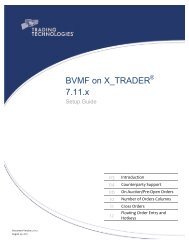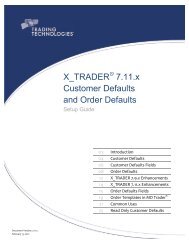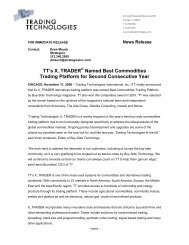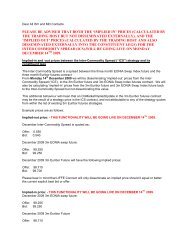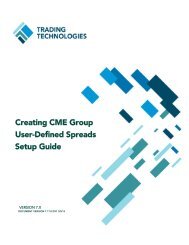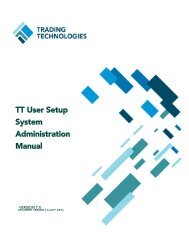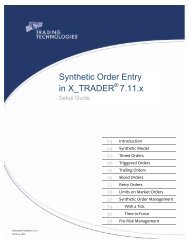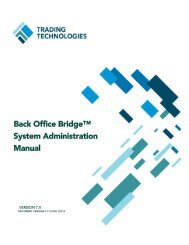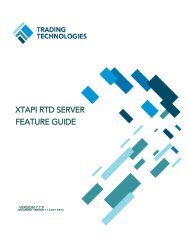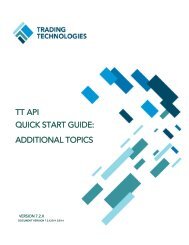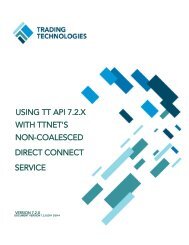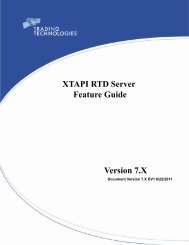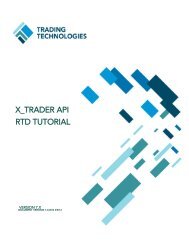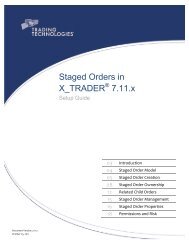Hardware and Software Requirements - Trading Technologies
Hardware and Software Requirements - Trading Technologies
Hardware and Software Requirements - Trading Technologies
You also want an ePaper? Increase the reach of your titles
YUMPU automatically turns print PDFs into web optimized ePapers that Google loves.
• Wake On = Disable<br />
• Wake up Mode Cap = Disable<br />
• Task Offload Cap = Disable<br />
• Jumbo Packet = Disable<br />
• Reduce Speed On Power Down = Disable<br />
• Save Power Now Enabled = Disable<br />
• Rx Coalescing Ticks = Disable<br />
• Tx Coalescing Ticks = Disable<br />
• Rx Max Coalesced Frames = Disable<br />
• Tx Max Coalesced Frames = Disable<br />
Note: See Appendix A for explanations about the above NIC settings.<br />
*Disable TCP Chimney Offload Settings<br />
Impact: This setting enables TCP/IP processing to be offloaded to network adapters that<br />
can h<strong>and</strong>le the TCP/IP processing in hardware. Each TCP Chimney Offload-capable network<br />
adapter has a finite number of connections that it can support in hardware. TT has<br />
determined through extensive testing that this setting should be disabled to improve performance.<br />
**Disable Receive Side Scaling (RSS)<br />
Impact: When multiple CPUs reside in a single computer, the Windows networking stack<br />
limits “receive” protocol processing to a single CPU. RSS enables packets that are<br />
received from a network adapter to be balanced across multiple CPUs. TT tests have<br />
shown that enabling RSS can slow down incoming data <strong>and</strong> cause dropped packets on<br />
both single <strong>and</strong> multi-processor machines.<br />
Note: Refer to CA104-07 for more information on these two settings.



